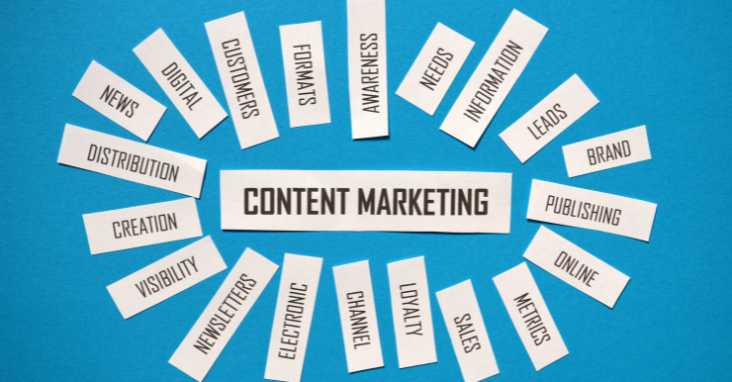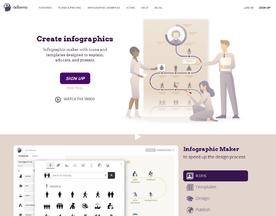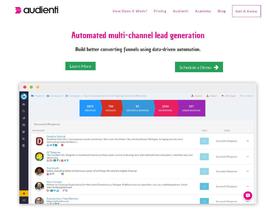In today’s digital landscape, content marketing is a critical component of any business strategy. However, creating and distributing high-quality and targeted content can be time-consuming and resource-intensive. This is where content marketing automation comes in – it enables businesses to streamline their marketing efforts, improve the quality and relevance of their content, and drive better results. In this blog post, we’ll explore the benefits of content marketing automation, the types of tools available, best practices for implementation, and examples of successful automating content marketing automation.
Benefits of Content Marketing Automation
Content marketing automation software offers several benefits for businesses:
Increased Efficiency and Productivity: Content marketing automation enables businesses to save time and resources by automating repetitive tasks such as content distribution, social media posting, and lead nurturing. This allows marketers to focus on more strategic activities that require creativity and human input, such as content creation, strategy development, and campaign optimization.
Improved Lead Generation and Nurturing: Automation tools enable businesses to create personalized and targeted content that can engage and convert leads at every stage of the buyer’s journey. By using automation workflows to deliver relevant content to prospects based on their behaviors and interests, businesses can nurture them over time and build trust and credibility.
Consistent and Timely Content Distribution: Automation tools help businesses ensure that their content is published on schedule and across multiple channels, without the need for manual intervention. This ensures that the content reaches the right audience at the right time and increases the chances of engagement and conversion.
Enhanced Personalization and Targeting: Automation allows businesses to segment their audience and create tailored content that meets their specific needs and interests. By using data and insights to understand their audience’s preferences, businesses can create personalized and relevant content that resonates with them and drives engagement and loyalty.
Better Analytics and Data-Driven Decision-Making: Automation tools provide businesses with real-time analytics and insights that can help them measure the success of their content marketing campaigns, optimize their strategies, and make data-driven decisions. By tracking key performance indicators (KPIs) such as website traffic, engagement rates, and conversion rates, businesses can understand what’s working and what’s not, and make adjustments accordingly.
Content marketing automation can help businesses streamline their content marketing strategy and efforts, improve the quality and relevance of their content, and drive better results by increasing efficiency and productivity, improving lead generation and nurturing, ensuring consistent and timely content distribution, enhancing personalization and targeting, and providing better analytics and data-driven decision-making.

Types of Content Marketing Automation Tools
Content Creation and Curation Tools:
These tools help businesses create and curate high-quality and engaging content, such as blog posts, infographics, videos, and social media posts.
Example: Canva, a graphic design platform that enables businesses to create professional-looking designs for their content marketing campaigns. With Canva, businesses can choose from a variety of templates, images, and fonts to create custom designs for their blog posts, social media posts, and other repetitive content marketing tasks.
Social Media Management Tools:
These tools enable businesses to manage and publish their social media content, engage with their followers, and measure the success of their social media campaigns.
Example: Sprout Social, a social media and content management platform that allows businesses to schedule and publish their social media content, monitor their social media mentions and engagement, and analyze their social media performance. Sprout Social also provides tools for social listening and reputation management, enabling businesses to manage their social media presence effectively.
Email Marketing Automation Tools:
These tools allow businesses to create and send personalized and automated email campaigns, such as newsletters, welcome emails, and abandoned cart reminders.
Example: Klaviyo, an email marketing automation platform that enables businesses to create targeted and behavior-based email campaigns. Klaviyo provides features such as segmentation, A/B testing, and analytics that help businesses improve the effectiveness of their email marketing and drive engagement and conversions.
SEO and SEM Automation Tools:
These tools help businesses optimize their content for search engines, identify relevant keywords, and track their search engine rankings and performance.
Example: SEMrush, an SEO and SEM platform that provides tools for keyword research, competitive analysis, and backlink tracking. SEMrush also offers features for on-page optimization, content marketing process, analysis, and reporting that help businesses improve their search engine rankings and visibility.
Analytics and Reporting Tools:
These tools provide businesses with real-time analytics and insights that can help them measure the success of their content marketing campaigns, track their ROI, and make data-driven decisions.
Example: Google Analytics, a web analytics service that tracks website traffic, engagement, and conversion metrics. With Google Analytics, businesses can track the performance of their website and content marketing campaigns, identify areas for improvement, and make data-driven decisions that improve their ROI.
As you can see there are several types of content marketing automation tools available, including content creation and curation tools, social media management tools, email marketing automation tools, SEO and SEM automation tools, and analytics and reporting tools. These tools help businesses streamline their content marketing efforts, improve the quality and relevance of their content, and drive better results. Canva, Sprout Social, Klaviyo, SEMrush, and Google Analytics are just a few examples of the many tools available that can help businesses automate their content marketing processes and workflows and improve their content marketing ROI.

Best Practices for Implementing Content Marketing Automation
To successfully implement automated content marketing automation, businesses should follow these best practices:
Define Clear Goals and Metrics: Before implementing automation tools, businesses should define clear goals and metrics that align with their overall business objectives.
Develop a Content Strategy and Calendar: Businesses should create a content strategy and calendar that outlines their content themes, formats, and distribution channels.
Build a Segmented and Targeted Audience: Businesses should segment their audience based on their interests, behaviors, and demographics, and create tailored content that meets their specific needs.
Create High-Quality and Engaging Content: Automation tools can help businesses create and distribute content at scale, but it’s essential to ensure that the content is high-quality, relevant, and engaging.
Test, Measure, and Optimize Continuously: Businesses should test their automation workflows, measure their performance, and optimize their strategies based on the data and insights they gather.
Examples of Successful Content Marketing Automation
Here are three examples of successful content marketing automation tools:
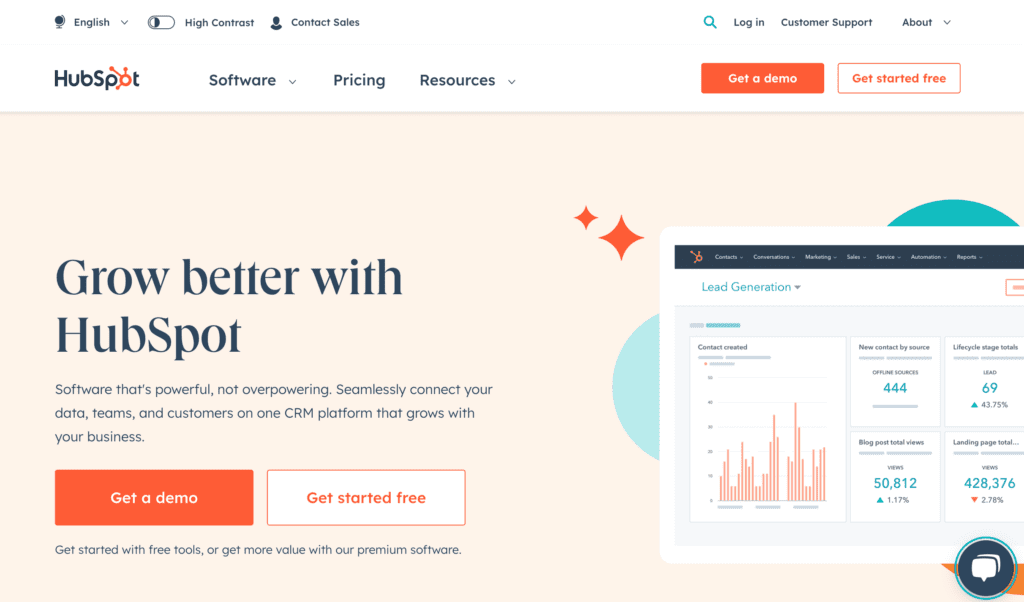
Hubspot’s Inbound Marketing Platform
Hubspot offers a suite of tools for content creation, social media management, lead generation, and analytics. It enables businesses to create and distribute high-quality and targeted content across multiple channels, to automate content and workflows, and track performance metrics.
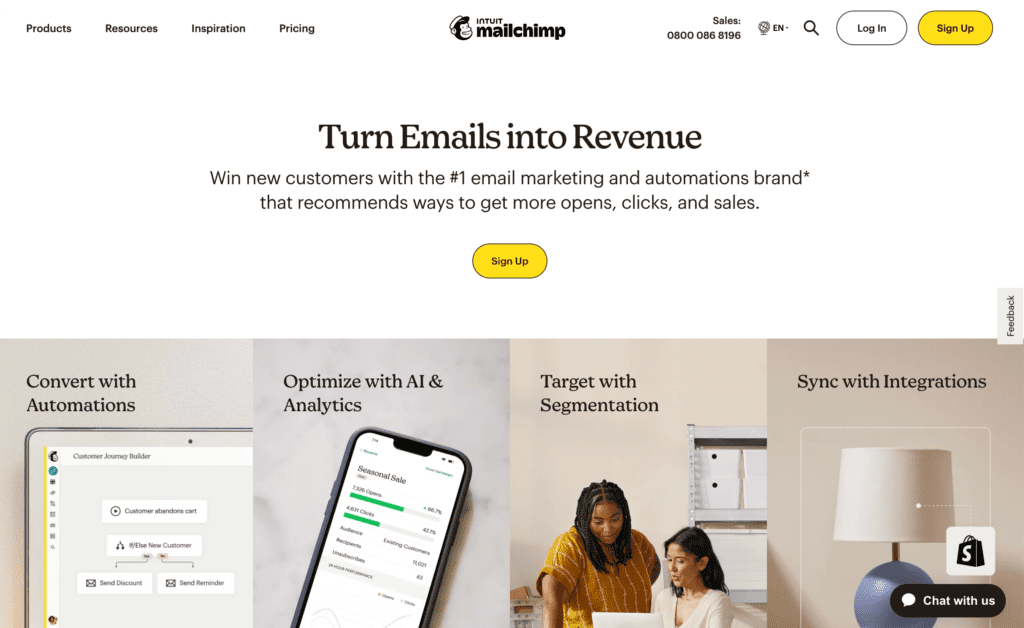
Mailchimp’s Email Marketing Automation Tool
Mailchimp’s email marketing automation tool helps businesses create personalized and automated email campaigns that can drive engagement, conversions, and customer loyalty. It offers features such as segmentation, A/B testing, and behavioral triggers that can improve the effectiveness of email marketing.
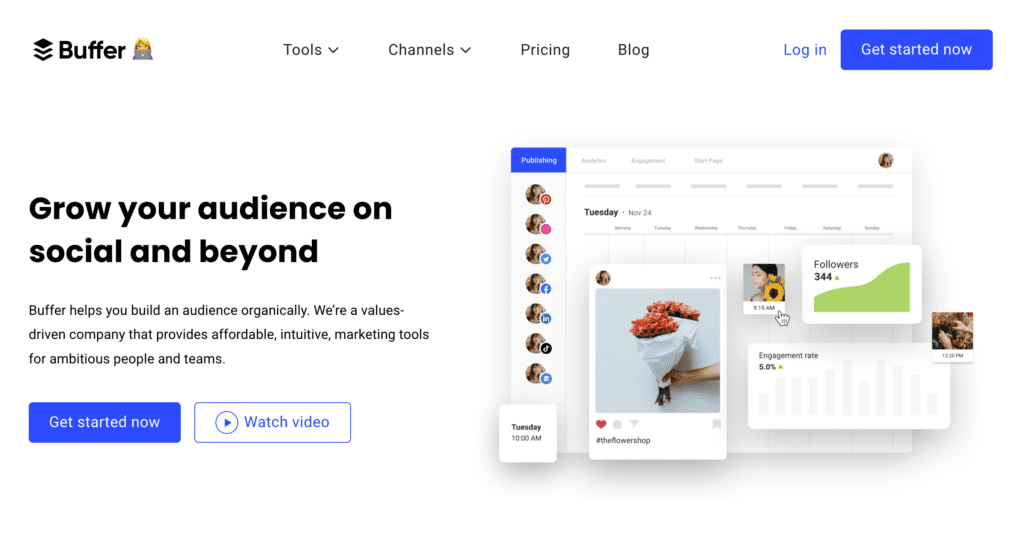
Buffer’s Social Media Automation Tool
Buffer’s social media automation tool allows businesses to schedule, publish, and analyze their social media content from a single dashboard. It supports multiple social media platforms, offers collaboration features to automate content marketing, and provides analytics and reporting tools to measure the success of social media campaigns.
Challenges and Limitations of Content Marketing Automation
While this content marketing automation tool offers several benefits, it also presents some challenges and limitations:
Overreliance on Automation: Businesses should avoid relying too heavily on automation and ensure that there is a human touch to their marketing efforts.
Lack of Human Touch and Authenticity: Automation can sometimes result in generic and impersonal content that doesn’t resonate with the audience.
Potential for Errors and Technical Issues: Automation workflows can sometimes be prone to errors and technical issues, which can affect the quality and effectiveness of the content.
High Costs and Complexity of Implementation: Implementing content marketing automation tools can be costly and complex, and businesses should carefully evaluate the ROI and benefits before investing.
Need for Ongoing Training and Support: Businesses should provide ongoing training and support to their teams to ensure that they can effectively use the automation tools and leverage their full potential.

Content Marketing Automation – FAQ
What is marketing automation?
A: Marketing automation is the process of using software and technology to automate repetitive marketing tasks, such as lead nurturing, email marketing, social media management automate content creation, and content creation.
What are the benefits of marketing automation?
A: Marketing automation offers several benefits for businesses, including increased efficiency and productivity, improved lead generation and nurturing, consistent and timely content distribution, enhanced personalization and targeting, and better analytics and data-driven decision-making.
What types of tasks can be automated using marketing automation?
A: Marketing automation software can be used to automate a wide range of tasks, such as email marketing, social media management, lead generation and nurturing, content creation and curation, SEO and SEM, and analytics and reporting.
What are some popular marketing automation tools?
A: Some popular marketing automation tools include Hubspot, Marketo, Salesforce Pardot, Mailchimp, Buffer, and Hootsuite.
What are some best practices for implementing marketing automation?
A: Some best practices for implementing marketing automation include defining clear goals and metrics for marketing team, developing a content strategy and calendar, building a segmented and targeted audience, creating high-quality and engaging content, and continuously testing, measuring, and optimizing.
What are some common challenges and limitations of marketing automation?
A: Some common challenges and limitations of marketing automation include overreliance on the automation software, lack of human touch and authenticity, potential for errors and technical issues, high costs and complexity of implementation, and the need for ongoing training and support.
How can businesses measure the success of their marketing automation efforts?
A: Businesses can measure the success of their marketing automation efforts by tracking key performance indicators (KPIs) such as website traffic, email open and click-through rates, social media engagement, lead conversion rates, and ROI. They can also use analytics and reporting tools provided by marketing automation platforms to track their performance and make data-driven decisions.

Wrapping things up
Content marketing automation offers businesses an opportunity to streamline their marketing efforts, improve the quality and relevance of their content, and drive better results. By leveraging automation tools, businesses can increase efficiency and productivity, improve lead generation and nurturing, ensure consistent and timely content distribution, enhance personalization and targeting, and make data-driven decisions. Content creation and curation tools, social media management tools, email marketing automation tools, SEO and SEM automation tools, and analytics and reporting tools are all examples of the types of automation tools available to businesses.
To succeed with content marketing automation, businesses should define clear goals and metrics, develop a content marketing strategy and calendar, build a segmented and targeted audience, create high-quality and engaging content, and continuously test, measure, and optimize their strategies. Hubspot, Mailchimp, and Buffer are just a few examples of the many tools available that can help businesses automate their marketing workflows and improve their content marketing ROI.
As businesses continue to adopt content marketing automation, it is important to remember that automation should not replace human touch and authenticity in marketing efforts. Businesses should continue to provide value to their target audience through personalized and relevant content that resonates with them. By finding the right balance between automation and human input, businesses can maximize the benefits of content marketing automation and achieve their marketing goals.
In closing, if you are looking to implement content marketing automation for your business, it is important to choose the right tools and software that align with your business goals and objectives. There are several content marketing automation tools and software available in the market, each with their own unique features and functionalities. To help you find the best content marketing automation software for your business, we recommend checking out Serchen’s list of top content marketing software providers. Here you can compare different software options, read reviews from other users, and find the perfect fit for your business.

